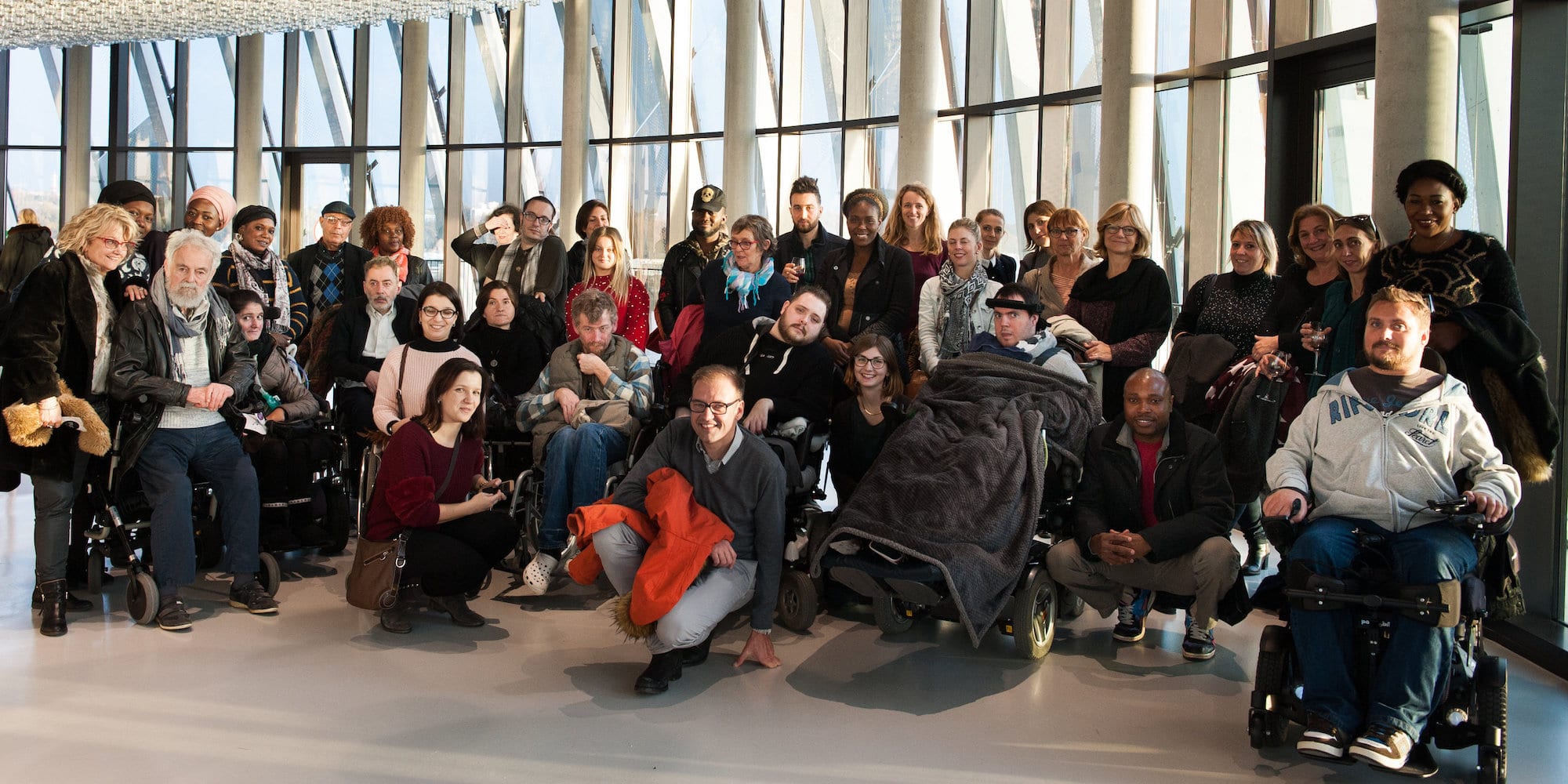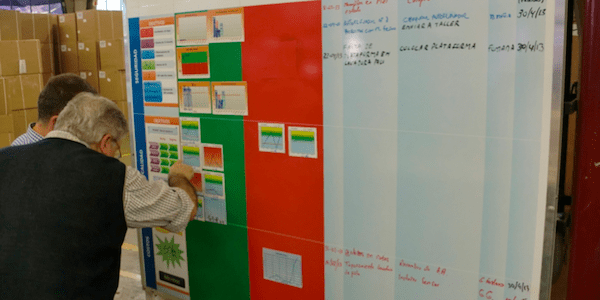
Building a competitive advantage with lean thinking
INTERVIEW – We chat with the CEO of a construction company in Dubai to learn about the competitive advantage that lean thinking is providing them.
Interviewee: Kareem Farah, CEO, Engineering Contracting Company – United Arab Emirates
Planet Lean: Tell us about ECC, please, and what led it to lean thinking.
Kareem Farah: Engineering Contracting Company was established in 1975 and is one of the long-standing contractors in the UAE. The foundational attributes of our corporate ethos are quality, transparency, and sustainability. Importantly, we aim to grow by innovating rather than just trying to continually increase our market share: we strive to offer our clients cost-effective solutions and a streamlined delivery of services. This is only possible because we are working hard on continuously improving our processes: lean construction principles define what ECC wants to achieve as an organization. Efficiency is becoming a critical requirement for organizations of all kinds, and we are investigating new methods and technologies that will simultaneously improve our building capabilities and our profitability.
PL: What are you doing to get people on board?
KF: We began by introducing team leaders across our departments to lean principles and techniques, in order to generate an understanding of what would be required going forward. After this, we selected 30 individuals to attend a three-day workshop to better understand how lean could make our processes more efficient. Lean Gulf Institute coaches were brought in to support our improvement efforts: their work included introducing us to new building methods, work practices and technologies, all of which would help us to eliminate waste and speed up processes across ECC. The training was instrumental in generating interest in departments across the company, from Commercial to Planning, from Construction Management to Project Management. As more people in these business areas learn how to implement the new procedures, our hope is that it will become easier and quicker to spread change among other teams and departments.
PL: What practical steps have you taken so far to improve ECC’s processes?
KF: We are at the beginning of our journey: lean principles are currently being implemented in one of ECC’s projects in Dubai, Mirdif Hills. It’s our Pilot Project, aiming to improve ceramic tiling activities. We will begin to widen the scope of the transformation as soon as enough staff members become familiar with lean thinking and practice. We certainly aim to bring lean to all our projects and processes in the future, but we understand this has to be a gradual process to give people time to digest the new way of working and thinking and to ensure we are still providing the best quality to our clients.
As part of our initial improvement efforts, we have developed a number of value engineering standards. Value engineering enables us to understand the requirements of a construction project and strategically aim to deliver on them in all phases of the project, with an emphasis on quality and cost. We managed to build these values into our employees’ way of thinking, which is ensuring the success of the project.
PL: Can you please tell us more about the Pilot Project?
KF: The team in charge of the ceramic tiling project gathered to conduct a value stream mapping exercise in order to identify non-value adding activities. Several ideas for kaizens resulted from this, with the initial objective of decreasing the time spent on NVA activities from 7,020 minutes to 5,400 minutes.
We made improvements to the process itself and to the logistics supporting the tiling work. As far as the process goes, we were able to increase our productivity from 625 square meters of laid ceramic tiles per day to 1,000 square meters. We did this by:
- Eliminating the rework associated with placing and removing the Protection Sheet that covers tiles by changing the sequence of work to assure the tiles don’t get damaged during the process.
- Using visual management to monitor the work of subcontractors, with a simple “planned vs actual” format.
- Reducing the subcontractor’s cycle time for laying tiles from 27 minutes to 20 minutes and by achieving a 50% reduction in waste in the number of cut pieces that cannot be reused (from 2 square meters per apartment to one square meter). We did this by deploying a water-jet cutting machine.
We were also able to decrease our inventory from five days to one day by improving replenishment using a supermarket system (so that the right quantity of the right material is supplied at the right time near the place where the tiles are being laid) and by implement 5S to better organize the working area and hand it over to the following trade in a good state.
PL: How would you define the attitude of ECC’s leadership towards change?
KF: As ECC’s top management team, we constantly strive to update our mindset so that we can help the organization retain its track record of delivering projects on time and at great value for money. We always ask ourselves how the company could be more innovative and we try to enable people at the front line to adapt our processes to changing circumstances. At ECC, we lead with innovation and have done so since our inception – as a company we are aware that we must adapt to the changing dynamics of the market. As leaders, we have embraced lean principles, because we believe they will allow ECC to overcome any challenges we might encounter in the future as the construction market keeps evolving. There is no doubt that the companies that are more efficient will be the ones that can adapt more easily to changing conditions in the market.
PL: Speaking of market conditions, what competitive advantage can lean bring to ECC?
KF: Lean helps us to be more efficient and to streamline our operations, as non-value added activities are minimized, quality of delivery is enhanced, and shorter lead-times result in cost savings. There is a lot of competition in the construction industry, but there are few companies that offer great quality at a lower cost. Developers are starting to realize the benefits of working with companies that apply lean ideas, as those are the ones that will thrive.
Our lean way of working provides considerable benefits to our clients. At ECC, for example, we bring together all parties involved in the process (the developer, the contractor and the architect). Ensuring that these key people work in a synchronized fashion makes commitment to the project a top priority for all of them. It also helps to bring more clarity to the work, which reduces risk and unnecessary costs. Another thing we do – inspired by the lean teaching about the voice of the customer – is providing customers with a range of cost-effective alternatives they can consider and choose from before we begin construction.
Adding value to projects is now a key element to any new ECC development: one example of this is creating apartment and townhouse mock-ups for our clients at no extra cost (this has the added benefit for us of enabling quicker decision-making on materials). We have seen customer satisfaction increase and our relationship with them strengthen.
PL: What do you think will make for a successful transformation at ECC?
KF: The construction landscape is evolving in such a way that non-lean companies will soon be left behind. It is clear to me that changing is not just a challenge, but a necessity to survive (and hopefully thrive) in the near future. To achieve a lean turnaround, I believe a company must be dedicated to change at the highest levels and across all departments. It’s also increasingly important to involve external stakeholders: subcontractor’s efficiency is becoming an integral part of every lean construction company’s plan. We have also made the executive decision to integrate BIM (Building Information Modeling) into our projects and operations going forward, as it allows for greater operational efficiency, significant cost savings and the best possible quality for our customers. BIM is another step towards becoming a model for lean construction. We believe it is the game-changer in our industry. Sustainability in a competitive marketplace, such as the UAE, requires early adoption of technology to avoid errors and remain cost effective through all stages of operations: ECC is an established contracting company in this country, but that doesn’t mean we want to stop evolving.
THE INTERVIEWEE

Read more


NOTES FROM THE GEMBA – This French company provides support to the severely disabled, and is currently using lean thinking to limit employee turnover and recruit faster.


FEATURE - Strategy deployment is fundamental to a lean transformation, but managers often struggle to understand its importance amid the day-to-day firefighting. This article will tell you how to make hoshin happen.


FEATURE - To get on a path of sustainable growth, an organization must get to know its customers... and there is no better way of doing so than embracing and analyzing their complaints.


FEATURE – This insightful piece explores the true meaning of problem solving, looking at the common mistakes leaders make when they adopt some of its key practices.

